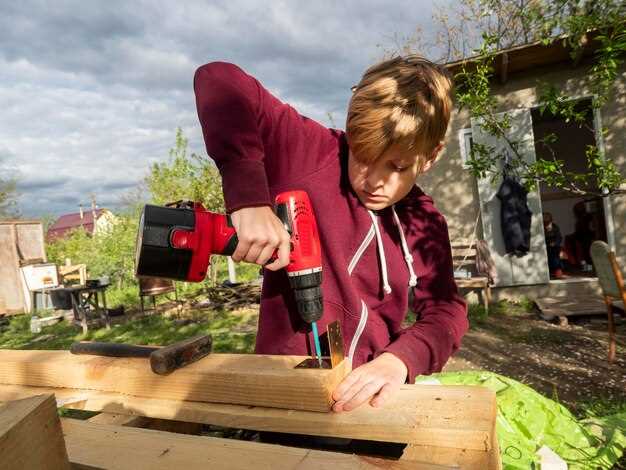
When it comes to auto repair, car enthusiasts often face the dilemma of whether to tackle the project themselves or to hire a professional. The rise of DIY culture has empowered many individuals to take on repair tasks that were once thought to be the exclusive domain of expert mechanics. However, the question remains: is DIY truly the best route, or does a professional rebuild ensure better results?
DIY auto repair can be incredibly rewarding, allowing car owners to develop skills and save money. With the right tools, resources, and a bit of determination, many tasks can be successfully completed at home. However, some repairs may require specialized knowledge or equipment that the average DIYer may not possess. This reality brings us to the crucial consideration of expertise and the potential for costly mistakes.
On the other hand, opting for professional services guarantees that the repair work is conducted by experienced technicians who have tackled a wide range of issues. Professionals bring their expertise to the table, minimizing the risk of error and ensuring that repairs are done according to industry standards. Yet, this option often comes at a premium cost, leading many to weigh the benefits against their financial constraints.
Ultimately, the decision between DIY and professional rebuild hinges on individual circumstances, skills, and the complexity of the repair needed. Understanding the strengths and weaknesses of each option can help car owners make an informed choice that best suits their needs.
DIY or Professional Rebuild: Which is More Suitable?
When it comes to rebuilding an auto, enthusiasts are often faced with a crucial decision: should they embark on a DIY project or hire a professional rebuild shop? Both options come with their own set of benefits and drawbacks, making the choice highly dependent on individual circumstances.
DIY Rebuild: For those who possess the necessary skills and tools, a DIY rebuild can be fulfilling. It allows car owners to take full control of the process, often resulting in a deeper understanding of their vehicle. Moreover, the financial aspect is enticing; by handling the rebuild themselves, individuals can save on labor costs. However, this route is not without its challenges. It requires a significant investment of time and may involve a steep learning curve for complex tasks. Mistakes can lead to further expenses and extended downtime.
Professional Rebuild: On the other hand, turning to a professional rebuild shop offers expertise that a DIY enthusiast may lack. Professionals have access to specialized tools, extensive experience, and knowledge about the intricacies of modern auto systems. This can lead to quicker turnaround times and often a higher-quality outcome. However, such services can be costly, and car owners may have less control over the specific changes made during the rebuild. Furthermore, the level of customer service can vary significantly from shop to shop.
Ultimately, the decision hinges on factors such as personal skill level, budget, time availability, and the complexity of the rebuild. For simple tasks or for enthusiasts eager to learn, a DIY approach may be more suitable. Meanwhile, for extensive rebuilds requiring precision and expertise, a professional shop is likely the better choice. Weighing these considerations is essential in determining the most appropriate path forward for any auto enthusiast.
Assessing Skills and Tools Needed for DIY Repair

When considering a DIY auto repair project, it’s crucial to assess both your skills and the tools required to complete the task effectively. The first step is to evaluate your understanding of automotive systems. If you have a basic knowledge of how engines work, along with some hands-on experience, you may be well-prepared for simpler repairs. However, complex issues may necessitate more advanced skills.
Tools are a significant factor in DIY repairs. A well-equipped shop is essential for tackling various tasks. Basic tools include wrenches, screwdrivers, pliers, and a socket set. Additionally, specialized tools like an OBD-II scanner or a torque wrench may be necessary for more advanced diagnostics and repairs. Ensure that you have access to the right equipment before starting a project.
Furthermore, consider the time commitment required for repairs. DIY projects often take longer than anticipated, especially if you encounter unexpected issues. Having patience and the ability to troubleshoot will enhance your chances of success. Relying on online tutorials and forums can also bridge gaps in your knowledge, providing insight into specific challenges you may face.
Ultimately, the decision to embark on a DIY auto repair should hinge on your confidence in your skills and the availability of the right tools. Knowing your limits is just as important as being equipped to handle the task at hand.
Cost Comparison: DIY vs. Auto Shop Services
When deciding between DIY repairs and utilizing auto shop services, a thorough cost analysis is essential. Both options have their financial implications, and understanding these can help in making an informed decision.
Here are the primary factors to consider in the cost comparison:
- Parts Costs:
- DIY: Purchasing parts online or from local retailers can usually save money. However, quality and compatibility should be considered.
- Auto Shop: Shops often have relationships with parts suppliers and may source components at lower prices than a single customer can. However, this may reflect in the overall service fee.
- Labor Costs:
- DIY: No labor costs if you perform the work yourself, but consider the value of your time, especially for complex repairs.
- Auto Shop: Labor rates can vary widely based on location, skill level, and type of repair, often ranging from $50 to $150 per hour. This can significantly inflate the total cost.
- Tools and Equipment:
- DIY: Initial investment in tools can be substantial. However, these tools can be reused for future repairs, lowering long-term costs.
- Auto Shop: Shops are equipped with specialized tools that may not be practical or affordable for home mechanics, which can affect the price of the repair.
- Time and Convenience:
- DIY: Repairs can take longer than expected, especially for novices. The time spent could increase costs in terms of inconvenience.
- Auto Shop: Provides a quicker turnaround, allowing you to return to your routine with minimal disruption, but may require waiting for an appointment.
In conclusion, both DIY and auto shop services have unique cost advantages and disadvantages. DIY might offer upfront savings, while auto shops provide speed and expertise. Assessing your own skills, the complexity of the repair, and your budget will guide you in making the most suitable choice for your auto repair needs.
Evaluating Time and Quality of Repairs by Professionals

When considering auto repairs, one of the key factors to evaluate is the time required for professionals to complete the work. Professional auto repair shops often have trained technicians with years of experience who can quickly identify issues and apply effective solutions. Their expertise allows for efficient diagnostics and repairs, often reducing the overall time your vehicle is off the road.
Moreover, professionals typically use advanced tools and equipment, which can further enhance the speed and accuracy of the repair process. This investment in technology not only improves turnaround times but also aids in achieving a higher quality of work. A shop may implement standard operating procedures that maximize efficiency while adhering to safety and quality standards.
In contrast, DIY repairs can consume more time, especially for those without extensive knowledge of automotive systems. Even experienced DIYers might find certain repairs more challenging than anticipated, leading to longer repair times and possible complications. This can ultimately affect the quality of the work performed, potentially leaving unresolved issues that could require professional intervention later.
Quality of repairs by professionals generally meets or exceeds industry standards due to their specialized training and resources. Many repair shops offer warranties on their work, providing customers with peace of mind. These warranties ensure that if any problems arise post-repair, they can be addressed at no additional cost.
In conclusion, when weighing the options of DIY versus professional auto repairs, the time and quality aspects heavily favor professionals. Their ability to quickly deliver durable and reliable repairs can often justify the investment compared to the uncertainty and potential pitfalls of DIY approaches.
